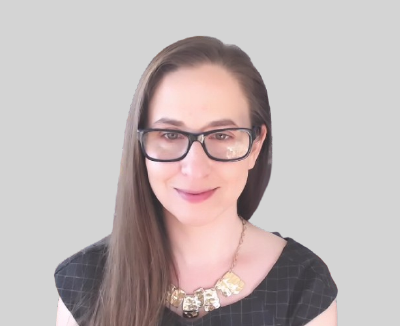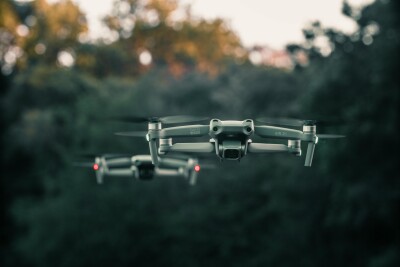Autel Robotics has been steadily growing its base under the shadow of DJI for many years now. Although it has been producing drone platforms that can compete with its competitor in terms of cost and quality, Autel has been a lot less visible than the other larger-than-life drone companies, like Skydio, competing for the same piece of the pie—that is, until now. With the appointment of Randall Warnas, as CEO of Autel Robotics North America, the drone company has decided to take a very deliberate step into the limelight in a way it hasn’t before.
Apart from Warnas having a long tenure and history with the drone industry, from starting the first brick and mortar drone store to his time at DJI and FLIR, Warnas’ philosophy over the years has revolved around visibility and engagement, both with members of the drone community and end users. This approach has not only built a strong foundation of connections, but a deep understanding of the industry’s complications and roadblocks.
“The drone industry is very complicated, so much so that if you do not know how to navigate it, it can scare you away,” explained Warnas to Commercial UAV News. “In this industry there is a lot to navigate to get to that special spot where you are doing meaningful work, and it can get derailed at any point. You need a drone manufacturer that is reliable and provides a quality product but also works with the software that you need to use to get the deliverable you want. You need to purchase that through a reseller that is trustworthy that will give you support. At any point along the road things can happen, the manufacturer could disappear—especially if it is a startup—the software could stop being compatible with your airframe, or the reseller could go out of business. This is all too much for businesses to deal with, we are expecting everyone to become full-on drone industry experts before they can navigate it—this is where change needs to happen. There is no reason why we can’t find a way to make the entire transition from pre-drones to a world with drones a faster, better experience across the board.”
What Does It Mean to Listen, to Be Transparent, and Available in the Drone Industry?
For Warnas, the solution to helping people transition to drones is multifaceted. His focus is on emphasizing building relationships and a positive reputation—emphasizing the need for empathetic listening, transparency and visibility, and mutual collaboration, while moving away from what he sees as an over fixation on market share and a zero-sum game.
“We still have a lot of convincing to do,” added Warnas. “If we’re only battling each other rather than trying to elevate this technology and demonstrate what it can do, that’s not going to happen. We need to change how we, as an industry, present ourselves to those who would benefit from it. When it comes to listening, I don’t think the industry has done as good a job as it should. When you look at the bigger corporations who are supplying the lion’s share of the technology, they are so big that they don’t need to listen if they don’t want to—they are operating in their own bubble. I am now able to take what I’ve been listening to over the years and do something about it. I want to build a new standard for the drone industry that is based on a high-level of transparency. As an industry, we need to listen and be more open in order to build trust.”
Within days of taking his position, Warnas demonstrated what transparency looks like when Autel put out a notice that due to the shortage of data chips, a widespread problem that has left many companies scrambling for alternatives, they had to change their supplier, and this would impact legacy users. Getting in front of an issue they know will be disruptive to clients, so that they can support customers, is the level of transparency he wants to catch on, especially in an industry where change is the norm and the key players on the field are still in flux.
“I’ve had a lot of conversations where people have told me that they bought a drone back in 2015 from X company that no longer exists, and they haven’t touched one since,” said Warnas, pointing to the need for accountability, support, and transparency. “This is the wrong way for us to treat an industry. Whoever took on that customer shouldn’t have been in a position to impact that individual’s perspective on what drones should do or can do for their business. We need to move away from the startup mentality of pushing a product to market to gain market share and start providing reliable products and customer support.”
When so much can happen to sour a relationship, transparency and support goes a long way toward keeping end users using drones. Warnas looks at the capabilities of Autel and sees a way to build long-term relationships that go beyond the early days of drone startups with limited production capacity and funding and provides a viable competitor to DJI.
“If you only have the capacity to build 500 drones reliably, we won’t be able to get anywhere in terms of growing the industry,” Warnas stated. “If we rely on small UAS companies that are venture capital funded with 100 total employees to try to catch up to a company like DJI that has 6,000 engineers, it’s not realistic. We need to build a more robust industry. We do that by working together and holding each other to higher standards so that we can provide better and more varied options. Monopolies are bad for any industry, but we can’t even the playing field with current tactics.”
What About Drone Security?
Part of what has enabled the possibility of a more level playing field has been tied to concerns about DJI. Despite DJI’s primacy in the drone industry and all that they have done to build this industry, Warnas feels that many of these concerns could have been mitigated with transparency and openness, which is why he is emphasizing these values as an essential component for success. It is not just a matter of building reliable products and relationships, it is also a matter of trust and security.
Determining what is and isn’t secure is a complex and ever-changing process that requires a high degree of transparency and openness about how data is managed, protected, and shared.
Not knowing whether your data is going to be safe when operating a drone can and has turned people away from adoption or even halted established drone programs.
But much of these concerns have been with country of origin. Controlling where a product is made or sourced may seem like a straight-forward process, but when you breakdown component parts and check where they are sourced, it gets incredibly complicated and isn’t necessarily a guarantee of security. It can be risky to only focus on one type of threat; it won't guarantee your drone is secure. Realizing this, and the challenges Autel, an American company with ties to China, faces, Warnas is driven to understand what customers need and systematically address what it means to be secure.
“My goal is to provide a secure drone solution that will check all the boxes that our customers need to feel secure. If they need it manufactured here without any Chinese componentry and have it rigorously tested, we’ll put ourselves through the paces to ensure our customers get that,” explained Warnas. “Because somebody is in the United States and that is where their data resides, you trust that more because you don’t think it is going to get in the hands of an enemy party or country that may access that data. But I don’t think that security should only be defined by the country of origin. I think that is short sighted. Does that really make it what the customer wants? I’m not sure. We need to think about security the right way. In the end, security is going to be defined by the user.”
Conclusion
Autel has taken a bold new direction with appointing Warnas as CEO. He is not looking to run with the pack but is looking to lead it and take it in new directions. By giving him the reigns, Autel is clearly no longer content sitting on the sidelines, and is ready to play ball.
“We are looking to change the norms that have been set in this industry,” Warnas concluded. “Autel is going to elevate the standard of service, communication, transparency, and long-term reliability by listening to and meeting the needs of our users. We are going to do things the right way.”
Warnas has a definitive vision for Autel and the drone industry that focuses on moving away from its early startup days and looks toward growing and building on what was promised back when he built that first brick and mortar store. To do this, the road for him is clear: As an industry, we must listen to the end user and build what they want in terms of performance, reliability, compatibility, affordability, and security over market share and venture capital.




.png.small.400x400.png)











Comments